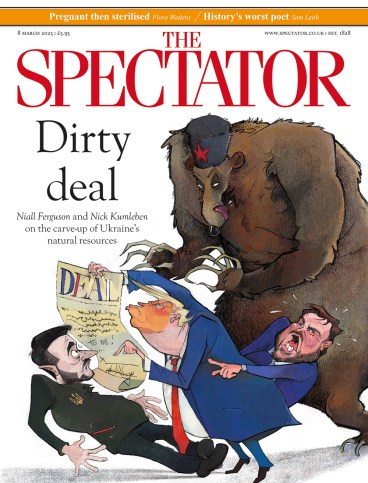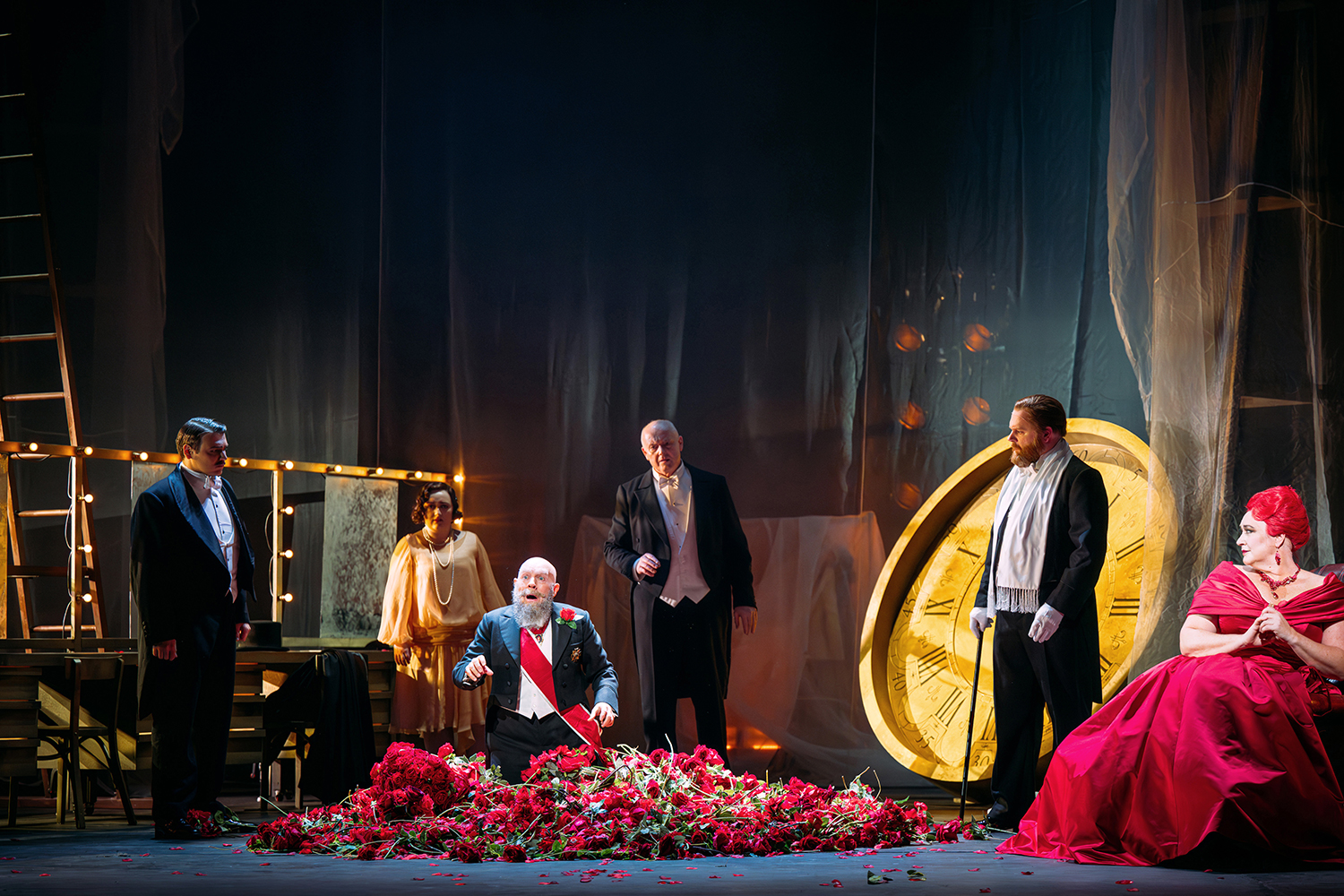
Stephen Hough’s new piano concerto is called The World of Yesterday but its second ever performance offered a dispiriting glimpse into the world of tomorrow. A couple of minutes into the finale Hough stopped playing and the orchestra fell silent. ‘I’m very sorry,’ he explained. ‘My iPad is going crazy.’ A murmur of sympathy, mingled with laughter; then Hough signalled to the conductor Mark Wigglesworth and the Bournemouth Symphony Orchestra and they carried on, this time without mishap. But we’d seen it happen, and until last week I’d have told you it was inconceivable.
This wasn’t some rash experiment: professional musicians have been using electronic scores for well over a decade, generally without problems. The Pavel Haas Quartet played from digital tablets at the Wigmore Hall in January (they used pedals to turn the pages). But why hadn’t Hough memorised his own concerto, you ask? There are many reasons why soloists sometimes prefer to stick with the score – as a backstop; as a means of assisting the other performers; or simply to avoid wasting mental bandwidth on a piece that they might only perform once or twice. Memorisation can be useful, but it can also be a fetish. If it’s a highwire act you’re after, you might be happier at the circus.
Regardless, there was something especially disheartening about this particular crash. After all, this is Hough we’re talking about. In piano terms, he’s an Olympian, a Nureyev-level genius: to hear him in full flight is to witness human physical and mental prowess at its summit. This is what peak performance looks like, and we’d just seen it derailed by some blinking, smirking box of tech-bro tricks. Did the computer on some level understand this, and resolve to show the meatware who was boss? Is this the Singularity; the rise of the machines? Watch this space.
As for the composition itself, The World of Yesterday isn’t really a concerto in the conventional sense. Its 20-minute span comprises a prelude, a waltz and a daredevil finale, with little of the symphonic argument that gives coherence to single movement concertos by Liszt, Prokofiev and Ravel. It’s more of a Fantasy or a Konzertstück: an enjoyable high-calorie celebration of grand rhetorical gestures, cinematic climaxes and yard upon yard of what the sterner critics of a vanished era would have called pianistic tinsel. But this wasn’t just tinsel, this was Stephen Hough tinsel – each strand a dancing, weightless garland of diamonds and opals. If Hough hadn’t spoken before now about his own sweet tooth, you could have guessed it from his music.
This wasn’t just tinsel, this was Stephen Hough tinsel
It feels mean to pick holes. Might a little more nudging have transformed the chromatic central waltz melody into a truly indelible tune, rather than simply a suggestion of one? And was it Elgar or Donald Tovey who warned against over-using a full orchestra at full power? Regardless, as a vehicle for Hough’s personal blend of wizardry and warmth, The World of Yesterday does exactly what its composer intended, and the Bristol audience responded with enthusiasm. Humanity one, robots nil. For now, anyway.
Scottish Opera’s main spring production was Janacek’s The Makropulos Affair in the staging that Olivia Fuchs created for Welsh National Opera in 2022. On that first outing it contained many effective and original ideas, and one catastrophic misjudgment – a distracting interlude between first and second acts that delivered a colossal spoiler. Good news: the spoiler has gone, and everything seems tighter, tauter and more intensely focused on the weirdly engrossing world of this greatest of magical-realist operas.
Curiously, that made it feel more like an ensemble piece – even, at times, an ensemble comedy, true to the subversive spirit of Janacek and his co-creator Karel Capek. It still revolves around the mysterious diva Emilia Marty, and Orla Boylan sang with flashing, acidic ferocity right up to the astonishing final scene, where her character’s anguish warmed rather than chilled her voice. Around her spiralled an unusually well-drawn supporting cast. Krista (Catriona Hewitson) looked and sounded genuinely like a younger, sweeter Marty; Roland Wood sang Baron Prus as a goatish but perceptive man of the world and Thorbjorn Gulbrandsoy, standing in at short notice, burned straight to the point as Albert Gregor.
Martyn Brabbins was the conductor, and the orchestra sounded red-blooded. Too red-blooded, at times; the singers were not always audible. Still, this of all operas thrives on physicality – the hot surges of emotion that erupt, impossibly, into its brisk, realistic world. Janacek should never be prim or predictable, and the composer would surely have laughed as loudly as the audience at David Pountney’s blunt English translations (‘It’s only fucking!’). I left the Festival Theatre feeling like I’d been thrown from a carousel; head buzzing with emotions that I still can’t really explain. I think that’s called art.








Comments